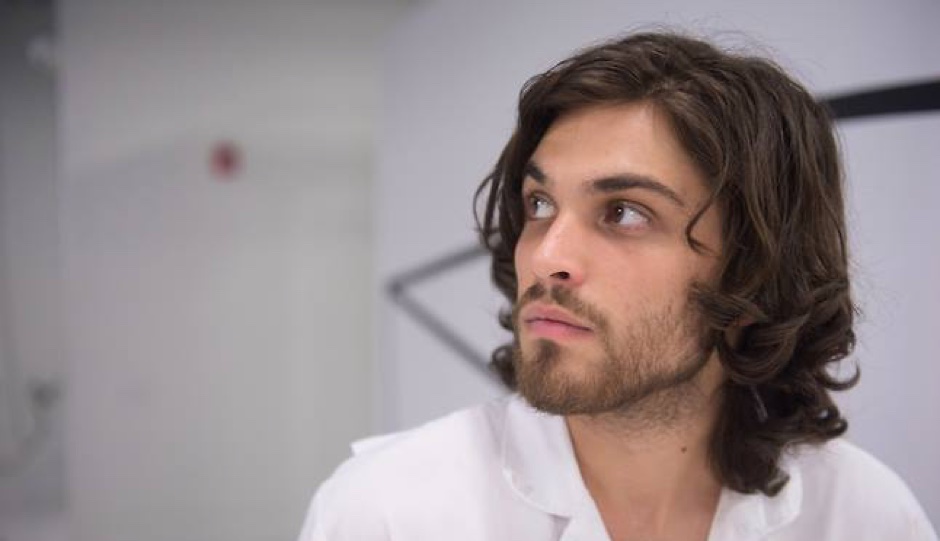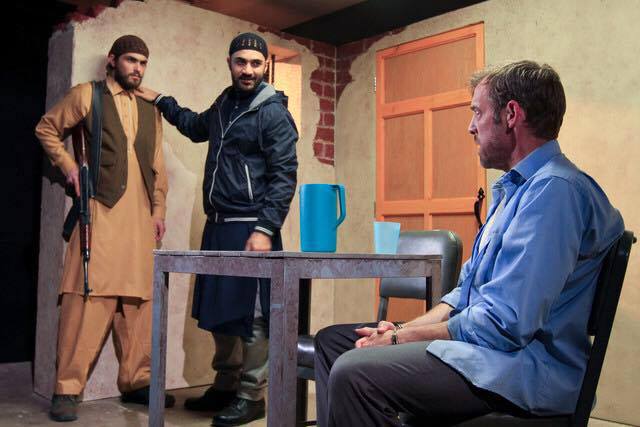LGBTQ&A: Anthony Mustafa Adair

Anthony Mustafa Adair. Photography by Jacques Jean-Tiziou
Anthony Mustafa Adair, a 24-year-old rising star in Philadelphia’s theater scene, chats with us about his experiences as an openly gay Afghan performer and his role in Theatre Exile’s Philadelphia premiere of The Invisible Hand.
What inspires you to entertain?
I love storytelling. Although I imagine plenty of it is a need for attention, I truly believe there’s something innately human about telling a story to someone else, and seeing in their eyes that they’re listening and engaged. I also believe that my taste is what drives me to entertain. I know what’s good, I know what’s tired and boring — and I think that alone can be enough for me sometimes.
What unique experiences do you face being an gay Afghan actor?
I’m not certain that these parts of me have collided into a nice anecdotal, sharable story. My mother is a white American and my father is an Afghan refugee, so I grew up in two very culturally different families. My dad was the one in his family very eager to assimilate and had little interest in Islam and other cultural norms — he was leaning into being an American. So I have never felt a great deal of pressure from my father to be “Afghan,” whatever that means to my family. While I did go to mosque when I was younger, I never wrestled with my sexuality in a religious way, like I know many people do. I know that there is a very real problem that it can unsafe to be gay in South Asia and the Middle East — and if you want Allah in your life, there’s no major reformations in the religion as it stands now. Being a gay Muslim isn’t even really an option for those who want to live a godly life.
How would you define the current atmosphere for diverse LGBTQ performers in the city?
Although I’ve personally done nothing to fix this problem, I do want to make a call to arms that while representation of queer persons is up, there needs to be more content that is by LGBTQ community and for the LGBTQ community. We cannot let others have control over our narrative. If we really want to say who we are, we can’t wait for someone else to tell the world.

Adair (left) in a scene from The Invisible Hand. Courtesy of Theatre Exile
What made you take on this particular new role?
It’s funny. I’m a young, struggling actor, so I’m obviously not in a place yet to be saying “Thanks, but no thanks” to any theaters in the city — although my fingers are crossed that one day I might have the luxury of choosing all the shows I do. However, that being said, I would not have accepted this particular show unless the quality of the script was as high as it is. There’s only a few reasons why I would not accept a role based on the material, but the big one is terrorism. I have no interest in falling into the Homeland TV show formula where every brown guy you see is a goddamn terrorist and that’s the only constant images Westerners get of Muslim and Middle-Easterners. And yet, here I am in this play, holding an American hostage with an AK-47 over my shoulder. So it seems like I wouldn’t want to do this show, but Ayad Akhtar is so talented at writing that he humanizes everyone’s point of view. You see more than a brown guy with a funny accent and a gun.
What’s one piece of advice you would give LGBTQ performers in the city?
I’m not sure I’m in a place to be giving out advice to my peers, but I would say follow your curiosity and your good taste. If the establishment isn’t ready for your work, make your own work. If you build it, they will come. You don’t need anyone else’s approval to make the art you want to make — even though the theater-industrial complex in the city can be hard to get into at times even if that’s where you want to be.
You can see Adair’s performance in “The Invisible Hand” through June 5th at Studio X, 1340 South 13th Street.


